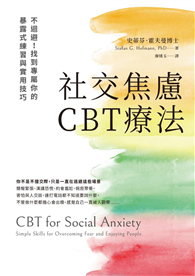Allegory and Enchantment is about the genealogies of modernity and the lingering power of some of the cultural forms against which modernity defines itself: religion, magic, the sacramental, the medieval. Jason Crawford explores the emergence of modernity by investigating the early modern poetics of allegorical narrative, a literary form that many modern writers have taken to be paradigmatically medieval. In four of the most substantial allegorical narratives produced in early modern England--William Langland’s Piers Plowman, John Skelton’s The Bowge of Courte, Edmund Spenser’s TheFaerie Queene, and John Bunyan’s The Pilgrim’s Progress--allegory is intimately linked with a self-conscious modernity and with what many commentators have, in the last century, called "the disenchantment of the world." The makers of these early modern narratives themselves take a keen interest in metaphors and postures of disenchantment. They fashion themselves as skeptics, spell-breakers, prophets against false institutions and false belief. And they often regard their own allegorical forms as another dangerous enchantment, a residue of the medieval past they have set out to renounce. In the context of various early modern crises of historical loss and revolutionary dissent, English poets from Langland to Bunyan become increasingly militant in their scepticism about allegory and about the theologies of incarnation that undergird it. But their self-regard also responds to paradoxes and anxieties at the core of allegory’s medieval poetics, and they discover that the things modernity has tried to repudiate--the old enchantments--are not as alien, or as absent, as they seem.
| FindBook |
有 1 項符合
Allegory and Enchantment: An Early Modern Poetics的圖書 |
 |
Allegory and Enchantment: An Early Modern Poetics 作者:Crawford,Jason 出版社:Oxford Univ Pr 出版日期:2017-03-26 語言:英文 規格:精裝 / 14 x 22.2 x 1.9 cm / 普通級 |
| 圖書館借閱 |
| 國家圖書館 | 全國圖書書目資訊網 | 國立公共資訊圖書館 | 電子書服務平台 | MetaCat 跨館整合查詢 |
| 臺北市立圖書館 | 新北市立圖書館 | 基隆市公共圖書館 | 桃園市立圖書館 | 新竹縣公共圖書館 |
| 苗栗縣立圖書館 | 臺中市立圖書館 | 彰化縣公共圖書館 | 南投縣文化局 | 雲林縣公共圖書館 |
| 嘉義縣圖書館 | 臺南市立圖書館 | 高雄市立圖書館 | 屏東縣公共圖書館 | 宜蘭縣公共圖書館 |
| 花蓮縣文化局 | 臺東縣文化處 |
|
|
圖書介紹 - 資料來源:博客來 評分:
圖書名稱:Allegory and Enchantment: An Early Modern Poetics
|











